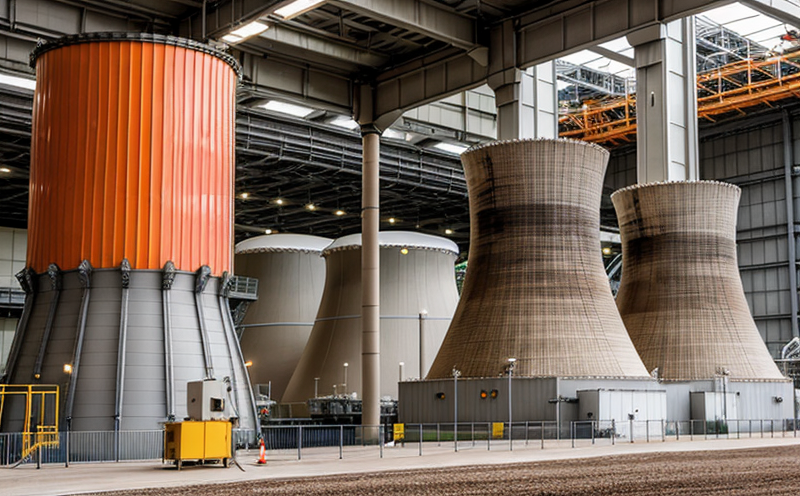ASTM G47 SCC Testing of Nuclear Reactor Stainless Steels
The ASTM G47 standard guide specifies procedures and techniques to detect stress corrosion cracking (SCC) in austenitic stainless steels, particularly relevant for nuclear reactor materials. This testing is critical due to the stringent performance requirements of nuclear power plant components under extreme conditions.
Stress corrosion cracking is a form of environmentally-assisted cracking that occurs when certain alloys, such as 304 and 316 stainless steels, are exposed to specific combinations of mechanical stress and corrosive environments. In the context of nuclear reactors, these materials must withstand high temperatures, radiation exposure, and aggressive cooling water chemistries. ASTM G47 provides a standardized method for identifying SCC susceptibility, ensuring that reactor components can meet safety and performance standards.
The testing process involves subjecting specimens to a combination of tensile stress and an aggressive environment. This can be done through immersion in chloride solutions or exposure to high-temperature water vapor. The goal is to simulate the conditions nuclear reactors experience during operation, thereby identifying potential SCC issues early on. The procedure is meticulous, with strict adherence to ASTM G47 guidelines ensuring accurate results.
The significance of ASTM G47 testing lies in its role as a safeguard against catastrophic failures due to SCC. In nuclear power plants, where even small cracks can lead to severe consequences, the reliability and integrity of materials are paramount. By using this standard test, manufacturers and quality assurance teams can ensure that only the most robust stainless steel components find their way into reactor systems.
The ASTM G47 methodology is not just a compliance requirement; it's a cornerstone in ensuring nuclear safety. The detailed procedures outline the steps necessary to replicate real-world conditions accurately, making this test indispensable for the sector. It’s a critical step in quality control and plays a vital role in R&D efforts aimed at improving material performance.
For procurement teams, understanding ASTM G47 is essential as it helps them select suppliers who adhere to rigorous testing standards. For R&D engineers, this test provides invaluable data for refining materials and processes. Compliance officers rely on the results of these tests to ensure their organization meets regulatory requirements. In essence, ASTM G47 SCC testing ensures that the nuclear industry operates with maximum safety and reliability.
- Replicates real-world conditions through controlled environmental stressors
- Achieves high accuracy and consistency in detecting potential cracks
- Facilitates early identification of susceptible materials, preventing failures
- Ensures compliance with international standards for nuclear safety
Why It Matters
The importance of ASTM G47 SCC testing cannot be overstated. The integrity and reliability of materials used in nuclear reactors are crucial given the high stakes involved. Stress corrosion cracking, if left undetected, can lead to catastrophic failures with potentially devastating consequences.
ASTM G47 provides a standardized approach that helps manufacturers ensure their products meet the stringent requirements set by regulatory bodies and industry standards. By identifying SCC susceptibility early in the production process, potential risks are minimized, enhancing overall safety and reliability of nuclear reactor components. This testing is particularly critical for materials like 304L, 316L, and other duplex stainless steels used in reactor pressure vessels and piping systems.
The test not only ensures compliance with international standards such as ASTM G47 but also sets a benchmark for excellence in material performance. For quality managers and compliance officers, it serves as a critical tool in maintaining high standards of safety and operational integrity within the nuclear industry. In essence, ASTM G47 SCC testing is essential for safeguarding lives and ensuring the smooth operation of nuclear power plants.





